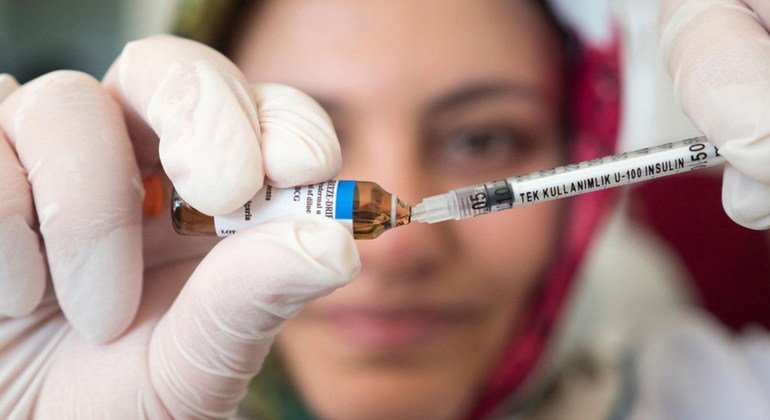Measles has returned and is striking reception centers for asylum seekers. Health authorities discovered an outbreak of the disease in the reception center in Reinickendorf, Berlin, and isolated 80 refugees who had not been vaccinated against the disease.
The State Office for Refugee Affairs Berlin (LAF) announced that a refugee had contracted measles in Reinickendorf reception center, and then he with four members of his family were placed in an isolated shelter. About 500 people live in the building where the disease was discovered, 80 of whom were not vaccinated due to the holiday, and were temporarily isolated in a separate shelter.
The Ministry of Health imposed a quarantine in the reception center until mid-May. The quarantine applies to people who have not been vaccinated against the disease. The Ministry of Health will both provide vaccination to all individuals with no proven immunization as soon as possible, as well as release the vaccinated individuals from the quarantine.
Measles had spread in the refugee camp in the Tegel region weeks before, after the infection of a number of refugees from Ukraine with measles, where the Ministry of Health carried out a massive vaccination campaign, after imposing a quarantine until eliminating the disease.
Measles is known to be one of the most contagious diseases, as the virus is transmitted quickly through several routes, including coughing, sneezing, or simply talking from a close distance. The virus causes fever, cough, runny nose, and a brown skin rash.
If treatment is delayed, measles can cause serious and long-term complications that last for many years. Vaccination and recovery of the infected person from the disease provides permanent immunity, since measles is a disease that occurs only once.





